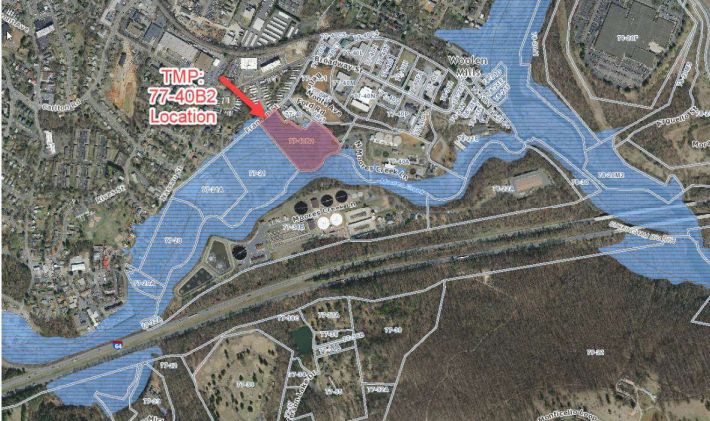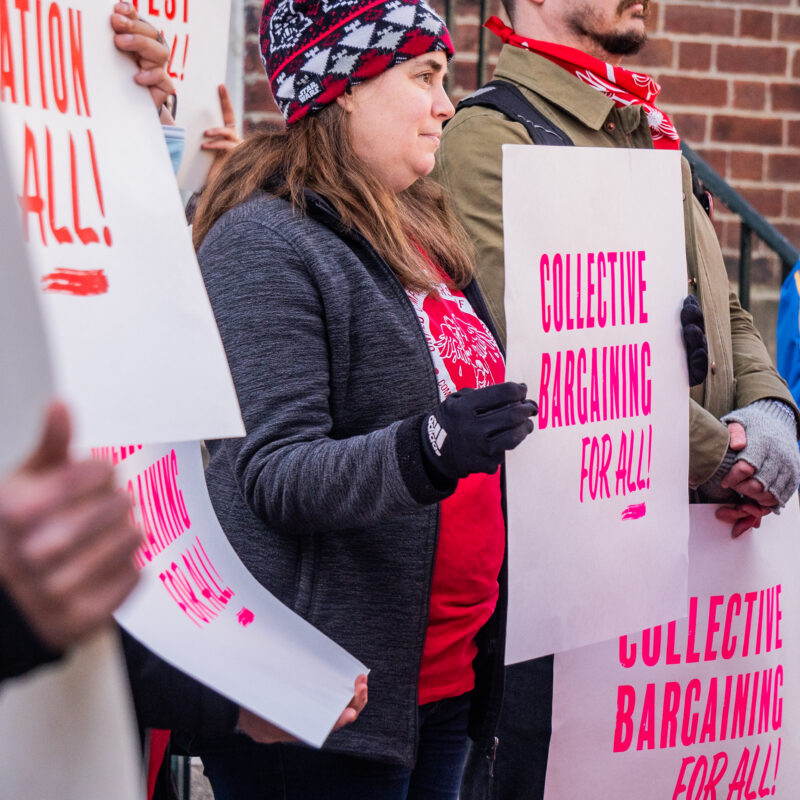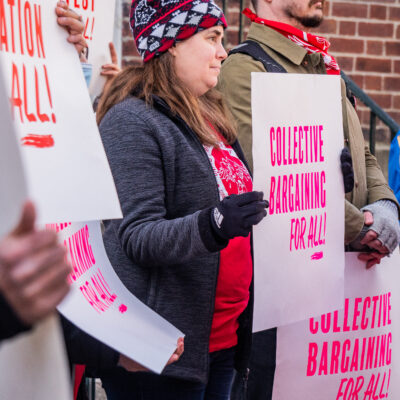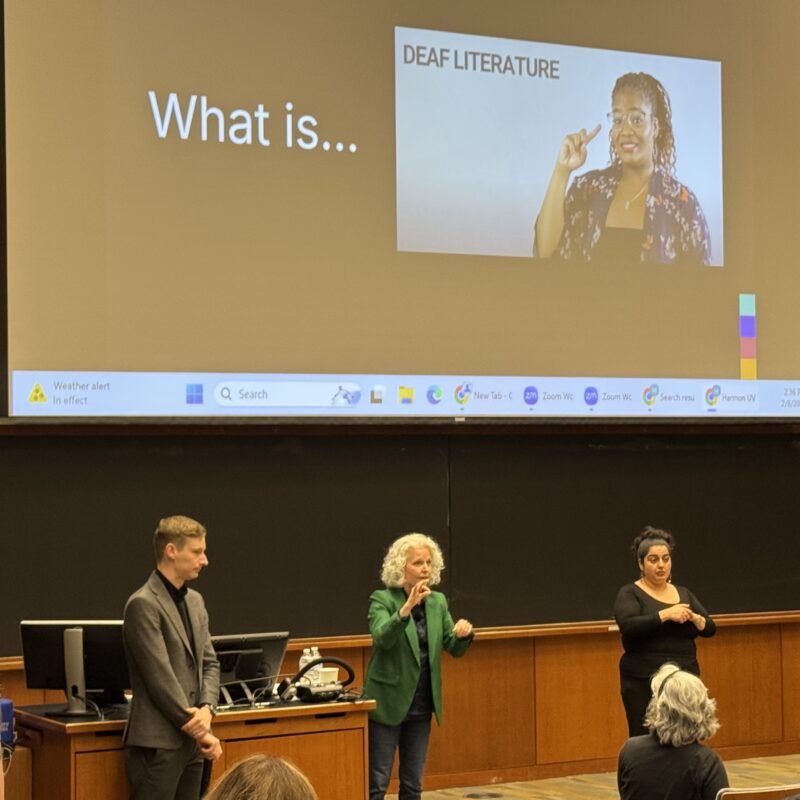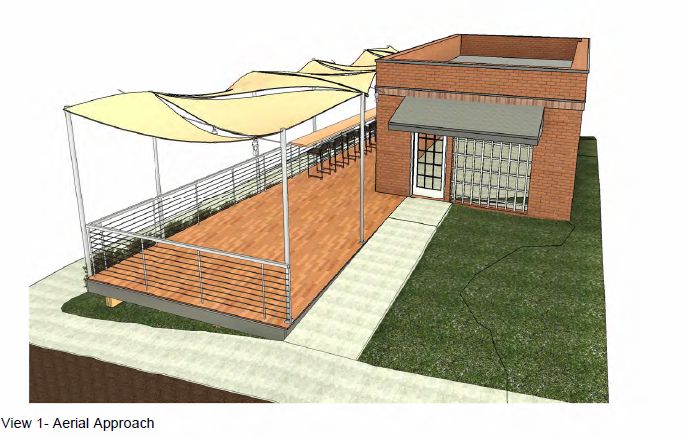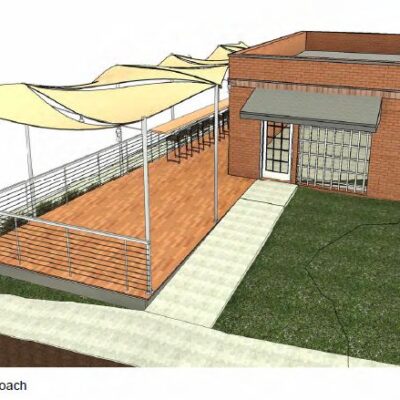One of the areas Albemarle Board of Supervisors has identified for industrial development is along Broadway Street in a land-locked section of the county only accessible via roads through Charlottesville.
The future happens one application at a time and the Board will soon consider whether it wants to allow the owners of a project called the Woolen Mills Industrial Park to fill in a portion of a seven-acre property on Franklin Street. The Planning Commission had their public hearing on April 25.
“The underlying zoning is light industrial,” said Albemarle Planning Manager Rebecca Ragsdale. “The purpose is to potentially allow 1.47 acres to be filled and then allow for future industrial uses.”
Property owner Elemental Ecotech has not yet indicated any specifics but a 9-foot-tall retaining wall would need to be constructed to help create the building pad at 325 feet above sea level. Filling in the floodplain also triggers the involvement of the Federal Emergency Management Agency, which has to approve the plan. The agency has issued a conditional approval and would grant a permanent one after the fill has taken place.
The rest of the property would remain in the floodplain and a portion of the land would be dedicated to the county for open space and, potentially, a trail easement.
Several speakers who live across the border in the city urged the Planning Commission to recommend denial. Eli Connell of Franklin Street said climate change has led to more intense storms.
“We’re having a longer hurricane season, we’re having more intense hurricanes, and we’re having more frequent hurricanes,” Connell said. “It just seems to me that this is something that we would have approved in 1990 when we didn’t really know much better.”
Similar concerns prompted the City of Charlottesville to spend $5.9 million in late 2023 to purchase 23.8 acres of land along the Rivanna River in part to prevent a developer from building a 245-unit apartment complex in the floodplain.
City resident Jenny Mikulsi said she was concerned a future building could be as high as 67 feet and called the promise of a trail easement a red herring.
“An isolated park on the rear of this lot would be very unsafe and very difficult to maintain and a liability to the county,” Mikulski said. “There is no connectivity to the trail system at all.”
Commissioner Karen Firehock said the floodplain provides an ecological service.
“During a storm as the water is rushing down, because it has this area it spreads out and dissipates the energy of the water,” Firehock said. “[Floodplains] have a purpose and we really should not build in the floodplains.”
Commissioner Nathan Moore said the City of Charlottesville should be involved in the discussion. The Woolen Mills property is adjacent to the Carlton Mobile Home Park, which is now owned by Habitat for Humanity of Greater Charlottesville and the Piedmont Housing Alliance. City Council is backing the purchase with an $8.7 million forgivable loan over five years.
“We barely speak to the city, which is kind of a structural problem,” Moore said. “We have so little regional cross boundary cooperation, even though for all intents and purposes this is one area, this is one neighborhood literally across the street.”
However, Moore said he disagreed with colleagues who said the county should not allow more industrial development given the number of existing businesses in the Broadway corridor.
“It’s next to a sewage treatment plant, for crying out loud,” Moore said.
Commissioner Julian Bivins pointed out that Albemarle Supervisors told staff last June they want the Broadway Corridor to remain industrial. He said he felt the benefits would be worth losing some floodplain.
“For me, an acre and some change being set up for a pad to be light industrial also does something else for me,” Bivins said. “As you’ve known me to talk about, I’m about economic development, so I’m about putting jobs in places that people could walk to.”
The Albemarle County Planning Commission voted 4-3 to recommend approval of the permit. A public hearing before the Board of Supervisors has not yet been scheduled.
Areas marked in blue are considered floodplain but a property can petition the county and the Federal Emergency Management Agency to fill in the land. The site is marked in red.
